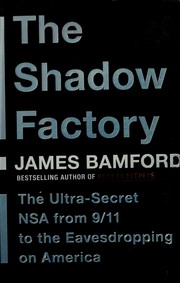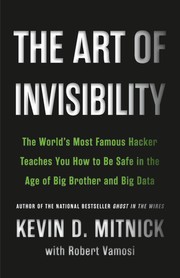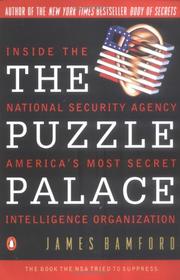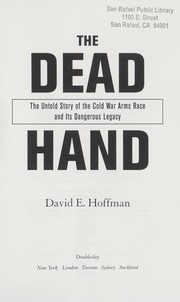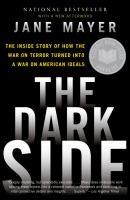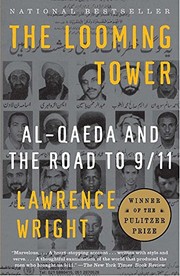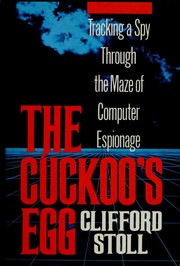Are you fascinated by the complex world of national security? Do you want to dive deeper into the intriguing stories and insights that shape our understanding of this crucial field? Look no further! In this article, we have curated a list of the 20 best books about national security that are sure to captivate and educate you. From espionage thrillers to thought-provoking analyses, these national security books will take you on a thrilling journey through the intricate web of global security challenges. So, grab a cup of coffee and get ready to explore the fascinating world of national security through these remarkable literary works.
Contents
- 1 The Perfect Weapon
- 2 The Fifth Domain
- 3 The Age of Surveillance Capitalism
- 4 The Code Book
- 5 The Shadow Factory
- 6 The Darkening Web
- 7 The Doomsday Machine
- 8 The Art of Invisibility
- 9 The Hacked World Order
- 10 The Future of Violence
- 11 The Red Web
- 12 The Perfect Storm
- 13 The Watchers
- 14 The Puzzle Palace
- 15 The Dead Hand
- 16 The Secret War
- 17 The Dark Side
- 18 The Looming Tower
- 19 The Sword and the Shield
- 20 The Cuckoo’s Egg
- 21 Conclusion
The Perfect Weapon
by David E. Sanger
The Perfect Weapon by David E. Sanger is a captivating book on national security that delves deep into the world of cyber warfare and its impact on global politics. Through meticulous research and engaging storytelling, Sanger offers a thought-provoking analysis of the ever-evolving landscape of modern warfare.
The Fifth Domain
by Richard A. Clarke and Robert K. Knake
The Fifth Domain: Defending Our Country, Our Companies, and Ourselves in the Age of Cyber Threats is a compelling and eye-opening book on the ever-evolving world of cybersecurity. Written by Richard A. Clarke, a former White House official, and Robert K. Knake, an expert on cybersecurity policy, this book delves into the intricate web of digital threats that our nation and its citizens face in the digital age.
In this thought-provoking national security book, Clarke and Knake shed light on the invisible battleground of cyberspace, exploring the vulnerabilities that exist within our government, businesses, and personal lives. They brilliantly explain how cyber attacks have the potential to disrupt entire nations, cripple economies, and undermine the very fabric of society.
Through a series of real-world case studies and in-depth analysis, The Fifth Domain offers a comprehensive understanding of the complex challenges faced by governments, organizations, and individuals in defending against cyber threats. The authors provide invaluable insights into the strategies and tactics employed by both state-sponsored hackers and criminal organizations, helping readers grasp the magnitude and sophistication of these attacks.
Moreover, Clarke and Knake do not simply dwell on the threats; they also outline practical solutions to combat the ever-growing cyber menace. They emphasize the urgent need for collaboration between governments, private companies, and individuals to develop effective defense mechanisms and strategies. The authors advocate for a proactive approach to cybersecurity, urging readers to take responsibility for safeguarding their own digital lives.
Engaging, informative, and deeply relevant, The Fifth Domain is a must-read for anyone seeking to understand the critical importance of cybersecurity and its impact on national security. This book serves as a wake-up call, reminding us that the digital realm is now a battleground, and every individual has a role to play in defending against the threats that lurk in the fifth domain.
The Age of Surveillance Capitalism
by Shoshana Zuboff
The Age of Surveillance Capitalism: Unveiling the Dark Side of the Digital Revolution
Welcome to the era where the phrase “knowledge is power” has taken on a whole new meaning. In The Age of Surveillance Capitalism, Shoshana Zuboff dives headfirst into the murky world of data exploitation and its profound implications for our society.
This groundbreaking book sheds light on the alarming reality that our personal information has become an incredibly valuable commodity, fueling a new economic system known as surveillance capitalism. Gone are the days when companies simply sold products or services. Instead, they now capitalize on our every move, thought, and desire, transforming our lives into a vast data mine.
But why should we care? After all, haven’t we willingly surrendered our privacy in exchange for the convenience and connectivity that the digital world offers? Zuboff argues that the answer lies in the insidious consequences of this new economic order – consequences that reach far beyond our individual lives.
This is not just a book about national security or the protection of our personal information; it is a chilling examination of the power dynamics at play in our society. Zuboff explores how surveillance capitalism has infiltrated not only our data-driven economy but also our political system, posing a threat to democratic values and the very foundations of our society.
Through meticulous research and compelling storytelling, Zuboff exposes the underbelly of a system that relies on manipulating and predicting our behavior to maximize profit. She reveals the hidden mechanisms that enable surveillance capitalism to thrive, including the exploitation of psychological vulnerabilities and the creation of “behavioral futures markets.”
But this book is not all doom and gloom. Zuboff provides a glimmer of hope by calling for a collective awakening and a new social contract that places human values at the center of the digital age. She challenges us to reclaim our autonomy, demand accountability from tech giants, and build a society that prioritizes the well-being of its citizens over the voracious appetite for data.
The Age of Surveillance Capitalism is a wake-up call, a call to arms, and a call for change. It is a national security book like no other, as it uncovers the hidden threats lurking beneath the surface of our digital lives. Zuboff’s masterful exploration of this dark side of the digital revolution is essential reading
The Code Book
by Simon Singh
The Code Book is an exhilarating journey into the fascinating world of cryptography, a captivating book that unravels the secrets behind the hidden messages that shape our world. It is not just a book about national security; it is a thrilling exploration of the power of codes and ciphers throughout history.
Simon Singh, an acclaimed science writer, takes readers on a mesmerizing adventure, from the ancient Egyptians to the modern-day digital age, revealing the ingenious techniques used to protect sensitive information. With each turn of the page, you will delve deeper into the art of encryption, understanding how codes have influenced major events and shaped the course of history.
From the military strategies of Julius Caesar to the Enigma machine that played a pivotal role in World War II, this national security book uncovers remarkable stories of secrecy and deception. It unveils the brilliance of codebreakers like Alan Turing and their tireless efforts to crack seemingly impenetrable ciphers, ultimately altering the course of the war.
But The Code Book goes beyond wartime tales. It delves into the world of espionage, unveiling the intriguing cat-and-mouse game between intelligence agencies and codebreakers. It explores the delicate balance between national security and individual privacy, raising thought-provoking questions about the ethics of encryption and surveillance.
Whether you are a history buff, a technology enthusiast, or simply someone who loves a good mystery, The Code Book will captivate you. With its engaging storytelling and mind-bending revelations, it is a book that will have you questioning the secrets hidden in plain sight and marveling at the incredible power of codes.
The Shadow Factory
by James Bamford
The Shadow Factory is an enthralling book on national security that delves into the secretive world of intelligence agencies and their surveillance programs. James Bamford, a renowned investigative journalist, takes readers on a captivating journey through the labyrinthine corridors of power, shedding light on the covert operations that shape our modern world. This compelling book about national security uncovers the hidden mechanisms of surveillance and espionage, exploring the delicate balance between protecting national interests and preserving civil liberties.
The Darkening Web
by Alexander Klimburg
The Darkening Web: A Gripping Exploration of the Perils Lurking in the Shadows of the Internet
Prepare yourself for an electrifying journey into the hidden depths of the digital realm with The Darkening Web. In this captivating book on national security, Alexander Klimburg delves into the intricate web of cyber threats that loom over our interconnected world.
With the rise of technology, our lives have become increasingly entwined with the digital domain. However, alongside the countless benefits come a multitude of risks that threaten our very existence. Klimburg artfully unravels the complex tapestry of cyber espionage, cyber warfare, and the countless vulnerabilities that plague our interconnected society.
But this is not just any ordinary book about national security. Klimburg’s masterful storytelling and meticulous research transport us into the heart of the action, allowing us to witness firsthand the clandestine battles fought in the shadows of the internet. From state-sponsored hacking campaigns to the underground economy of cybercriminals, every page uncovers a new layer of intrigue.
As we navigate through the dark underbelly of the digital world, Klimburg skillfully explores the implications of these threats on our personal lives, economies, and even the very fabric of our democracies. He highlights the urgent need for individuals, nations, and international organizations to come together and confront this ever-growing menace.
Prepare to be enlightened, amazed, and perhaps even frightened by the revelations contained within this groundbreaking national security book. The Darkening Web is a wake-up call, urging us to acknowledge the vast complexities of the digital age and take the necessary steps to safeguard our future.
The Doomsday Machine
by Daniel Ellsberg
The Doomsday Machine by Daniel Ellsberg is a gripping and eye-opening book on national security that delves into the terrifying reality of nuclear weapons and their potential for global catastrophe. Drawing on his firsthand experience as a former defense analyst and whistleblower, Ellsberg takes readers on a journey through the secretive world of nuclear strategy and the inherent dangers it poses to humanity.
The Art of Invisibility
by Kevin Mitnick
The Art of Invisibility is a captivating book that delves into the fascinating world of cybersecurity and personal privacy. Written by Kevin Mitnick, a renowned hacker-turned-security consultant, this book is a goldmine of knowledge for anyone concerned about safeguarding their digital life.
From the moment you open the book, you are taken on a thrilling journey that explores the intricate ways hackers exploit vulnerabilities and invade our privacy. Mitnick’s expertise and real-life experiences make this book an absolute page-turner, providing valuable insights into the world of cybercrime and espionage.
While some might consider it a ‘national security book,’ The Art of Invisibility goes beyond the standard jargon and technicalities typically associated with the genre. Mitnick masterfully breaks down complex concepts and offers practical advice that even the least tech-savvy reader can understand and implement.
Whether you’re concerned about protecting your personal data from cybercriminals, or you’re simply curious about the hidden dangers of our increasingly digital world, this book is a must-read. It’s a compelling guide that empowers individuals to take control of their privacy and security, ensuring they can navigate the digital landscape with confidence.
In a world where our every move is being tracked and our personal information is constantly at risk, The Art of Invisibility is a timely reminder that we all have the power to protect ourselves. So, if you’re ready to become a digital ninja and learn the secrets of staying invisible in the digital age, this book is your ultimate guide.
The Hacked World Order
by Adam Segal
The Hacked World Order by Adam Segal is a captivating book on national security that reveals the hidden battles being fought in the digital realm. In this book about national security, Segal explores the new frontier of cyber warfare and the complex challenges it poses to governments, organizations, and individuals alike. With cyber attacks becoming increasingly prevalent and sophisticated, Segal dives deep into the world of hackers, state-sponsored cyber espionage, and the potential consequences of a global cyber conflict.
The Future of Violence
by Benjamin Wittes and Gabriella Blum
The Future of Violence: A Book on National Security
In their groundbreaking book about national security, Benjamin Wittes and Gabriella Blum delve deep into the ever-evolving landscape of modern threats and the challenges they pose to our society. The Future of Violence is not just another national security book; it is a thought-provoking exploration of the complex and multifaceted nature of security in the 21st century.
With the rise of technology and interconnectedness, the authors argue that traditional notions of national security are no longer sufficient. They examine how advancements in fields such as cyber warfare, artificial intelligence, and biotechnology have changed the game, giving both state and non-state actors unprecedented power to inflict harm.
Wittes and Blum emphasize the importance of adapting our approach to security in order to effectively combat these new threats. They propose a shift from a purely reactive mindset to one that is proactive and anticipatory. By understanding the motivations and capabilities of potential adversaries, they suggest that we can better strategize and mitigate risks before they materialize.
The authors also address the ethical implications of these emerging technologies, highlighting the need for a robust legal framework to guide their use. They argue that striking the right balance between security and civil liberties is crucial to maintaining a free and open society in the face of evolving threats.
Throughout the book, Wittes and Blum provide real-world examples and case studies to illustrate their arguments, making the complex subject matter accessible to a wide audience. Their engaging writing style and thorough research make The Future of Violence a must-read for anyone interested in the intersection of technology, society, and national security.
With its thought-provoking insights and compelling analysis, The Future of Violence stands out as a national security book that goes beyond the conventional narrative. It challenges readers to reevaluate their understanding of security and prompts them to consider the implications of emerging technologies in our rapidly changing world.
The Red Web
by Andrei Soldatov and Irina Borogan
The Red Web is a captivating book on the intricacies of state surveillance and censorship in the digital age. Andrei Soldatov and Irina Borogan have masterfully crafted a thought-provoking account of how governments around the world manipulate the internet to control information flow and maintain power.
Delving into the realms of espionage, cyber warfare, and online activism, this remarkable book about national security unveils the hidden mechanics of a global surveillance state. Soldatov and Borogan take readers on a thrilling journey, exposing the dark underbelly of the internet and shedding light on the methods employed by various governments to monitor and manipulate their citizens.
Through extensive research and firsthand interviews with insiders, the authors reveal the shocking extent to which governments utilize technology to maintain control over their populations. From China’s “Great Firewall” to Russia’s sophisticated surveillance apparatus, the book showcases the complex web of state power that operates behind the scenes in the digital realm.
The Red Web is not just a national security book; it is a wake-up call for all internet users. It explores the constant battle between privacy and security, raising crucial questions about the balance between individual freedoms and governmental control. In an era where information is power, this book is a timely reminder of the importance of safeguarding our digital rights.
With its meticulously researched content and compelling storytelling, The Red Web offers a gripping exploration of the hidden world of state surveillance. It is a must-read for anyone interested in understanding the complex interplay between technology, politics, and national security in the modern era.
The Perfect Storm
by Sebastian Junger
The Perfect Storm by Sebastian Junger is not just your typical book about national security. It is a gripping and intense account of one of the most devastating storms in history, a true national security book like no other.
The Watchers
by Shane Harris
The Watchers by Shane Harris is a captivating book on national security that delves into the hidden world of intelligence gathering and surveillance.
With an engrossing narrative style, Harris takes readers on a thrilling journey through the shadowy corridors of power, revealing the intricate web of technology, espionage, and policy that underpins our nation’s security.
This gripping book about national security explores the covert operations of intelligence agencies, the challenges they face in the digital age, and the delicate balance between privacy and protection.
Through meticulous research and compelling storytelling, Harris sheds light on the national security apparatus that operates behind closed doors, exposing the inner workings of organizations like the NSA and CIA.
From the development of cutting-edge surveillance technologies to the controversial practices of data collection and analysis, The Watchers offers a thought-provoking examination of the complex issues surrounding national security in the modern world.
The Puzzle Palace
by James Bamford
The Puzzle Palace: A Fascinating Book about National Security
Discover the hidden world of intelligence agencies, covert operations, and the intricate web of national security in James Bamford’s riveting book, The Puzzle Palace. This captivating masterpiece offers readers an unprecedented glimpse into the secretive realm of national security, revealing the inner workings of government agencies tasked with protecting the country.
Delve into the labyrinthine depths of the intelligence community as Bamford expertly unravels its history, from its early foundations to its modern-day practices. With meticulous research and compelling storytelling, the author paints a comprehensive picture of the complex machinery that safeguards nations from external threats.
Uncover the clandestine operations conducted by intelligence agencies, as they navigate the treacherous waters of espionage, surveillance, and counterintelligence. Bamford’s detailed accounts shed light on the ingenious techniques employed to gather information, the high-stakes missions carried out in the shadows, and the delicate balance between national security and personal privacy.
The Puzzle Palace offers a thought-provoking exploration of the ethical dilemmas faced by those involved in the business of national security. As the book peels back the layers of secrecy, readers are confronted with questions about the limits of surveillance, the trade-offs between individual freedoms and collective safety, and the ever-evolving challenges posed by emerging technologies.
From the birth of cryptology to the controversial practices of intelligence agencies, Bamford’s work is a captivating journey through the fascinating world of national security. Whether you are a history enthusiast, a political junkie, or simply seeking an intriguing read, The Puzzle Palace is an absolute must-read.
The Dead Hand
by David E. Hoffman
The Dead Hand by David E. Hoffman is a captivating book on national security that exposes a chilling and little-known chapter in the history of the Cold War. This national security book delves deep into the race between the United States and the Soviet Union to build and control the most destructive weapons ever known to humanity: nuclear missiles.
The Secret War
by Max Hastings
A National Security Book That Unveils The Clandestine Battle:
Step into the covert world of espionage and military intelligence with “The Secret War” by Max Hastings, a gripping book on national security that delves deep into the hidden conflicts that have shaped the modern world. With a keen eye for detail and a talent for storytelling, Hastings unveils the labyrinthine networks of spies, agents, and strategists who have played pivotal roles in global affairs.
The Dark Side
by Jane Mayer
The Dark Side by Jane Mayer is a captivating book that delves deep into the shadowy world of American intelligence and its impact on national security. Mayer, an acclaimed investigative journalist, takes readers on a thrilling journey through the labyrinthine corridors of power, exposing the covert and sometimes sinister actions undertaken in the name of protecting the nation.
The Looming Tower
by Lawrence Wright
The Looming Tower is a captivating book about national security written by Lawrence Wright, which takes readers on a thrilling journey through the rise of Al-Qaeda and the events leading up to the tragic September 11 attacks. This meticulously researched and brilliantly written work dives deep into the depths of intelligence agencies, terrorist organizations, and the individuals behind them, providing a comprehensive account of the various factors that contributed to the deadliest terrorist attack on American soil.
The Sword and the Shield
by Christopher Andrew and Vasili Mitrokhin
The Sword and the Shield is a captivating book on national security that delves deep into the clandestine world of intelligence and espionage. Written by Christopher Andrew and Vasili Mitrokhin, this book is more than just a book about national security; it is a riveting account of the secret operations that shaped the Cold War.
The authors take us on a thrilling journey through the hidden corridors of power, where intelligence agencies from both sides of the Iron Curtain engaged in a deadly game of cat and mouse. But what sets this national security book apart is the unique perspective it offers.
Vasili Mitrokhin, a former KGB archivist, risked his life to smuggle out top-secret documents that exposed the KGB’s extensive network of spies and covert operations. These documents, meticulously compiled and analyzed by Christopher Andrew, provide an unprecedented insight into the world of Soviet intelligence.
From high-profile defectors to ingenious surveillance techniques, The Sword and the Shield uncovers the hidden truths behind some of the most notorious events of the Cold War. It reveals the KGB’s attempts to infiltrate Western governments, manipulate public opinion, and undermine their adversaries.
But this national security book is not just a compilation of shocking revelations; it is a testament to the courage and dedication of those who fought tirelessly to protect their nations. It sheds light on the often unheralded heroes and heroines who risked everything to defend the values we hold dear.
With its gripping narrative and meticulous research, The Sword and the Shield offers a rare glimpse into the shadowy world of intelligence. It is a must-read for anyone fascinated by the intricate web of espionage and the ongoing struggle for national security.
The Cuckoo’s Egg
by Clifford Stoll
The Cuckoo’s Egg by Clifford Stoll is a thrilling account of cyber espionage that reads like a gripping spy novel. This captivating book on national security takes readers on a fascinating journey into the world of computer hacking and the battle to protect sensitive information.
Conclusion
In conclusion, these 20 books about national security offer a comprehensive and engaging exploration of the complex world of global security. From historical accounts to current events, these books provide valuable insights into the challenges and strategies involved in safeguarding nations and ensuring the safety of their citizens. Whether you are a student, a policy-maker, or simply curious about national security, these books are an essential addition to your reading list. Dive into these pages and gain a deeper understanding of the intricate web of threats and defenses that shape our world.




